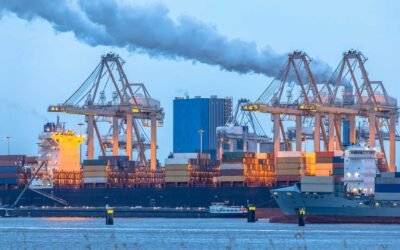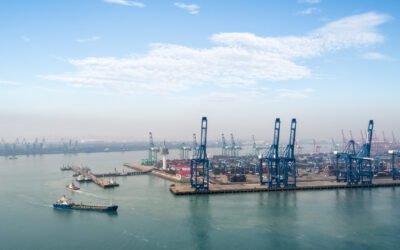Around 90,000 marine vessels carry out over 90% of the global trade through oceans. Ships, like all fossil fuel powered modes of transportation, emit carbon dioxide and, therefore, contribute considerably towards global emissions and climate change. More than 3% of the carbon dioxide emissions worldwide are caused by the shipping industry, which continues to grow rapidly to date [1]. If the global shipping industry were considered a country, it would be the sixth largest contributor of greenhouse gas emissions. Only the U.S., China, Russia, India, and Japan emit more CO2 than the entire global maritime fleet [1].




Shore to Ship Power Systems Service Overview
The research presented in this article is from PTR's Shore to Ship Power Systems market research. For information about this service please submit a request shown below.
Europe: +49-89-12250950
Americas: +1 408-604-0522
Japan: +81-80-7808-1378
GCC/Rest of APAC: +971-58-1602441
More About our: Shore to Ship Power Systems Market Research
Recent Insights
Fragile Balance: Designing Carbon Pricing Mechanisms to Nudge the World to Carbon-Neutrality
Carbon pricing is an increasingly popular mechanism that tackles climate change, by employing market forces to incentivize individuals and companies to transition to clean energy. The primary objective of carbon pricing is to change behavior. This report explores two...
COP27: The Fight to Keep the 1.5°C Goal Alive
The Sharm El-Sheikh Climate Change Conference took place last month in Egypt, commencing on 6 November 2022 and ending on the 18th. The conference builds up on pledges made in the COP26 at Glasgow last year and comprised of a series of events to build on future...
Battery Powered Vessels – Five Year Landscape
Vessel Charging is actively gaining popularity as countries are building up on the battery technology that would allow vessels to utilize electrical energy as alternative clean fuel all around the world; to depend on them in a hybrid or unblended manner. All electric...
Countries Offering Incentives and Making Investments to Lead Europe’s Shore Power Market
Around 90,000 marine vessels carry out over 90% of the global trade through oceans. Ships, like all fossil fuel powered modes of transportation, emit carbon dioxide and, therefore, contribute considerably towards global emissions and climate change. More than 3% of...
British MPs take on the OPS Market in the UK
Shore Power is actively gaining popularity around the world as countries are finding ways to de-carbonize the maritime industry. This technology allows a ship to turn off its on-board engines and get external electric power from the shore where it is berthed. The...
Ownership Structure of Ports Serving as a Double-Edged Sword for Shore Power in the UK
• Ports and shipping industry of the UK is the second largest in Europe, boasting 125 ports with cargo handling capacity all over the country. • Payback periods for shore power need to be shorter in the UK than on the continent primarily due to the private ownership...
Impact of the Russia-Ukraine Crisis on Energy Markets
The global spotlight is on the Russia-Ukraine crisis, which has been responsible for wreaking havoc on international fossil fuel markets. Western powers responded to the crisis by proposing a number of sanctions on Russia, including ones on its fossil fuel exports....






